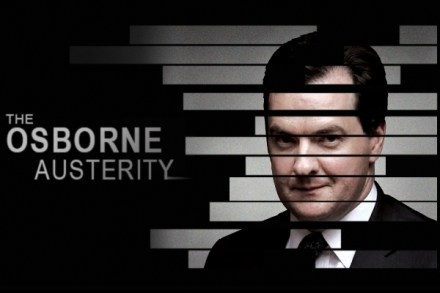Osborne’s “cuts” in full: an update
An friend of mine in the City just sent me what is perhaps the shortest email I’ve ever received. The text just read “WTF?” with an attachment: the below graph, from today’s borrowing data, showing that underlying state spending was up 5.5pc in the three months November, compared to the same period last year. The graph speaks best for itself:- So what the, em, blazes is going on? Simply that there is a detachment between the government’s rhetoric (preaching against the evils of debt) and what the government is doing (cuts averaging <1pc a year and national debt rising faster than that if any Eurozone country). This combination is making




















